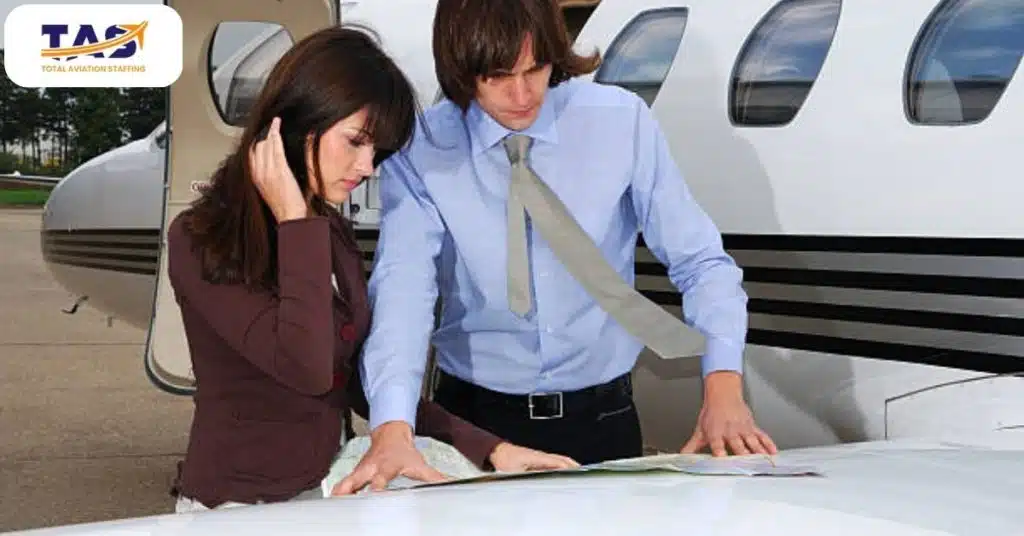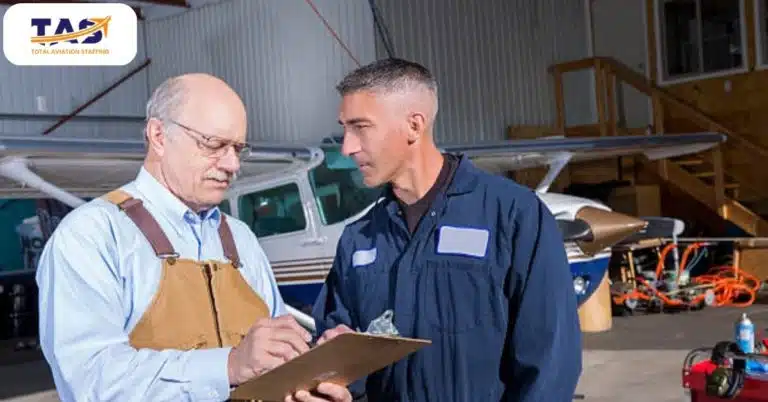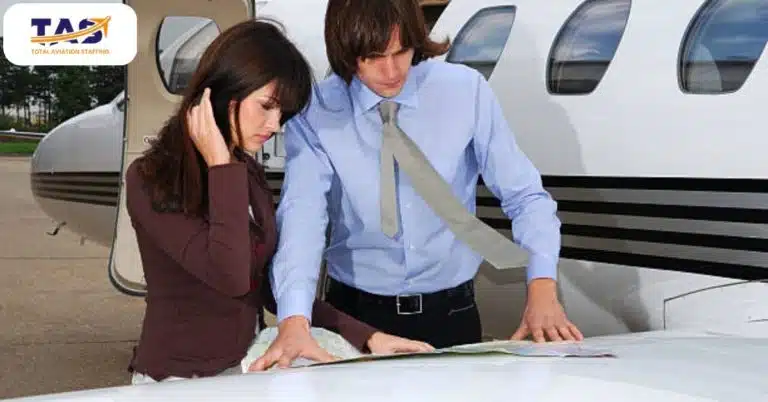Interview Questions to Gauge an Aircraft Sheet Metal Mechanic’s Experience

Interviewing an Aircraft Sheet Metal Mechanic requires asking specific questions to gauge their level of experience and expertise in the field. As aircraft safety and maintenance are crucial, it is vital to find the right candidate with the required knowledge and skills. Interview questions should be designed to assess their understanding of safety protocols, familiarity with different fabrication techniques, materials, and ability to interpret blueprints and perform complex mathematical calculations.
In this way, hiring managers can identify the most qualified candidates who can carry out tasks efficiently and safely, ensuring that aircraft are maintained to the highest standard.
1. Describe blueprint experience and ensure aircraft accuracy.
Blueprint reading and interpretation are essential skills for an Aircraft Sheet Metal Mechanic. The ability to read and understand complex engineering drawings and schematics is crucial to ensuring that the aircraft is built to the correct speAircraft Sheet Metal Mechanic, the candidate should have a solid understanding of how to read blueprints and identify all of the necessary measurements and dimensions.
They should also be able to interpret the various symbols and annotations on the blueprint to understanding the different types of materials and parts that will be used in the construction process. To ensure that the aircraft is built to the correct specifications, the candidate should also have experience double-checking their work and verifying that all measurements and dimensions are accurate before beginning the construction process.
They should also have experience working closely with other members of the aircraft production team to ensure that all components fit together properly and that the final product meets all necessary safety standards.

2. Describe your experience with sheet metal fabrication techniques and a project example.
In the aviation industry, it is crucial to have skilled Aircraft Sheet Metal Mechanics who are proficient in various fabrication techniques. One of the key skills is the ability to cut, bend, and weld sheet metal materials to create aircraft components that are structurally sound and meet safety standards.
Importance of experience in sheet metal fabrication techniques
Ability to cut, bend, and weld sheet metal materials
Examples of projects where these techniques were used
Candidates who have extensive experience in sheet metal fabrication techniques are valuable assets to aviation companies. Their ability to create high-quality, durable components is essential for ensuring the safety and reliability of aircraft. Employers should look for candidates who can provide specific examples of their work with cutting, bending, and welding sheet metal materials.

3. Describe your experience with sheet metal materials and selection. Explain aircraft structural repair/modification experience.
When working on aircraft sheet metal fabrication and repair, it is important to have experience working with different types of sheet metal materials. This includes aluminum, titanium, and steel. During an interview, it would be useful to ask the candidate if they have worked with these materials and how they determine which material to use for a specific project.
A skilled sheet metal mechanic should be able to determine the appropriate material based on factors such as the intended use of the aircraft, weight considerations, and cost. The ability to select the correct material is critical for ensuring that the aircraft is structurally sound and meets all necessary safety standards.

4. Describe aircraft structural repair/modification experience and safety standards adherence.
As an Aircraft Sheet Metal Mechanic, experience with structural repair and modification is essential. The ability to ensure that repaired structures meet all necessary safety standards is crucial to the safety of the aircraft and its passengers. Additionally, experience with complex mathematical calculations and measurements is necessary for fabricating and repairing sheet metal components accurately.
Finally, working with various types of sheet metal materials, such as aluminum, titanium, and steel, requires expertise in determining which material is best suited for a specific project.

5. Provide an example of performing complex math/measurement during aircraft project.
Performing complex mathematical calculations and measurements is an important aspect of aircraft sheet metal fabrication and repair. Candidates with experience in this area will be valuable to the industry. One example of a project where such calculations and measurements are necessary is the installation of wing structures.
This involves calculating the appropriate angles and dimensions for the wing structure, taking into account factors such as the weight of the aircraft, the materials used, and the desired performance. Precise measurements are also required for the installation of wing skins, which must be precisely cut and shaped to fit the wing structure.
Candidates who can provide examples of their experience with these types of projects and their proficiency in performing complex mathematical calculations and measurements will stand out to hiring managers in the aircraft sheet metal mechanic industry.

6. Describe your experience with safety protocols and ensuring a safe work area.
Maintaining a safe and clean work environment is critical in the aircraft sheet metal mechanic industry to prevent accidents and ensure the quality of work. This includes proper maintenance and use of tools and equipment, as well as adherence to safety protocols and procedures.
Experience with maintaining a clean and organized work area
Knowledge of safety protocols and procedures
Experience with maintaining and using tools and equipment properly
Familiarity with hazardous materials and their proper handling
Ability to identify and report potential safety hazards
Understanding of personal protective equipment (PPE) and its proper use
Ensuring a safe and clean work environment is essential for the well-being of the aircraft sheet metal mechanic and the quality of the work. Candidates who can demonstrate experience and knowledge in maintaining a safe and clean work environment and adherence to safety protocols and procedures will be valuable hires in the industry.

In conclusion
asking the right interview questions is essential to gauge the experience and expertise of an Aircraft Sheet Metal Mechanic. The questions should cover a range of topics, including knowledge of sheet metal fabrication techniques, experience with different sheet metal materials, understanding of safety protocols and procedures, proficiency with blueprint reading and interpretation, experience with aircraft structural repair and modification, and ability to perform complex mathematical calculations and measurements.
By carefully assessing a candidate’s skills and experience through these questions, hiring managers can make informed hiring decisions and build a strong team of skilled Aircraft Sheet Metal mechanics.
Are you ready to improve your hiring process? Total Aviation Staffing has the perfect solution – a tailored staffing strategy that meets your goals and ensures high-caliber candidates. With our experienced recruitment teams and expansive network, we are confident in finding the right talent for your organization. Contact us today and let’s get started! You won’t regret it. Let us help you find the perfect candidate to bolster your team and propel your business forward! Reach out today and we’ll get started on finding the perfect match for your organization. We look forward to hearing from you!
